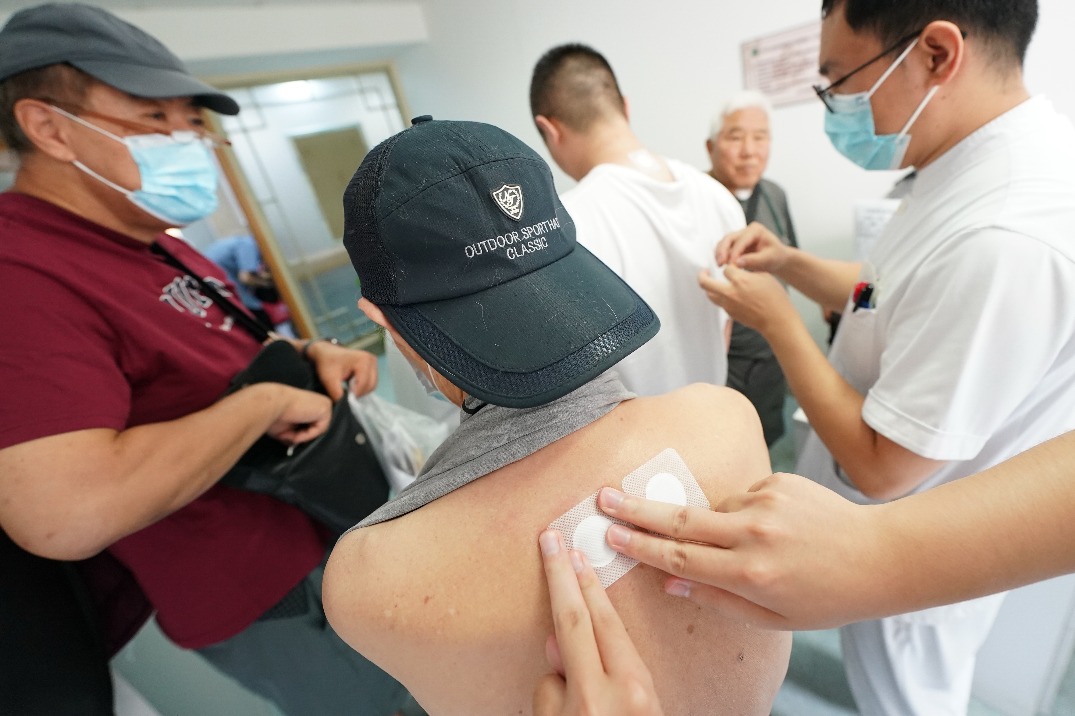Partnerships, policy implementation could reduce road carnage in Africa
By Edith Mutethya in Nairobi, Kenya | chinadaily.com.cn | Updated: 2024-07-17 17:28
Partnerships between government, private sector and non-governmental organization as well as enhancing coordination mechanisms, allocating adequate resources and improving data collection systems could help address road accidents in Africa.
This, in addition to prioritizing the safety of vulnerable road users and enhancing legislative frameworks, could help the continent realize the United Nations goal of halving road traffic deaths by 2030.
Patrick Kinyanjui, the Africa coordinator at Global Alliance of NGOs for Road Safety, said through advocacy and pointing the government to the right direction, NGOs could help improve road safety situation in Africa.
"The NGOs are in contact with the communities, they know what is happening at the community level so they are able to feed the government on the actual challenges and problems that communities are facing and are able to inform policy decisions at the highest level," he said.
Kinyanjui gave the remarks on Tuesday during the launch of the WHO Status report on road safety 2023 for the African region.
The report found that the African region holds the highest fatality rate, of 19.4 per 100,000 population compared with a global rate of 15 per 100,000.
Additionally, Africa recorded a 17 percent increase in road-related fatalities, between 2010 and 2021.
Despite hosting only 15 percent of the world's population, and 3 percent of its vehicles, the continent accounts for nearly one-fifth of all road deaths globally.
The report attributed the increased road traffic death rates to multiple factors, including inadequate road safety laws and standards.
No African country currently has laws that meet the best practice standards for the five key road safety behavioral risk factors of speeding, drink driving, non-use of motorcycle helmets, seatbelts and child restraints.
According to the report, males aged 15-64 years are the main victims of road traffic crashes. Vulnerable road users such as motorcyclists, cyclists and pedestrians are worst affected, with road-related deaths of motorcyclists doubling in the past 10 years.
Kinyanjui said the report findings will help in monitoring the progress on what governments are doing as well as measure progress to know when to fast-track some of the interventions being implemented.
In a speech read on his behalf, Harry Kimtai, the principal secretary of State Department for Medical Services at the Kenya's Ministry of Health, said road safety is a public health concern, noting that collective responsibility is crucial in addressing the burden.
"With strong and sustainable multi-sectoral engagement the target of halving the number of global deaths and injuries from road traffic accident can be advanced," he said.
"It's up to us to translate the findings into effective laws, regulations, policies and actions and most importantly implement them effectively."
Kimtai said lack of harmonized data from the health sector and police, underreporting and the poor quality data are some of the reasons that have led to the adoption of ineffective options on road safety.
He said road accidents are ranked the ninth cause of death in Kenya with the annual healthcare cost attributable to the road traffic injuries estimated at $361 million.
Joyce Nato, professional officer at the WHO Kenya country office, said the UN agency is supporting governments to harmonize data from the police and ministry of health, noting that availability of accurate data could help improve policy and implementation.
Abdourahmane Diallo, the WHO representative to Kenya, called on countries across Africa to develop the right policies or update the existing ones.
"We know the solutions that work so we need to look into them and see how we can adopt them into our countries, implement and enforce. Many countries have the relevant policies and laws but they are not being implemented," he said.
Kinyanjui attributed failure to implement the policies in many countries to lack of implemental budget allocation to road safety which is usually listed as the last priorities of the governments.
























